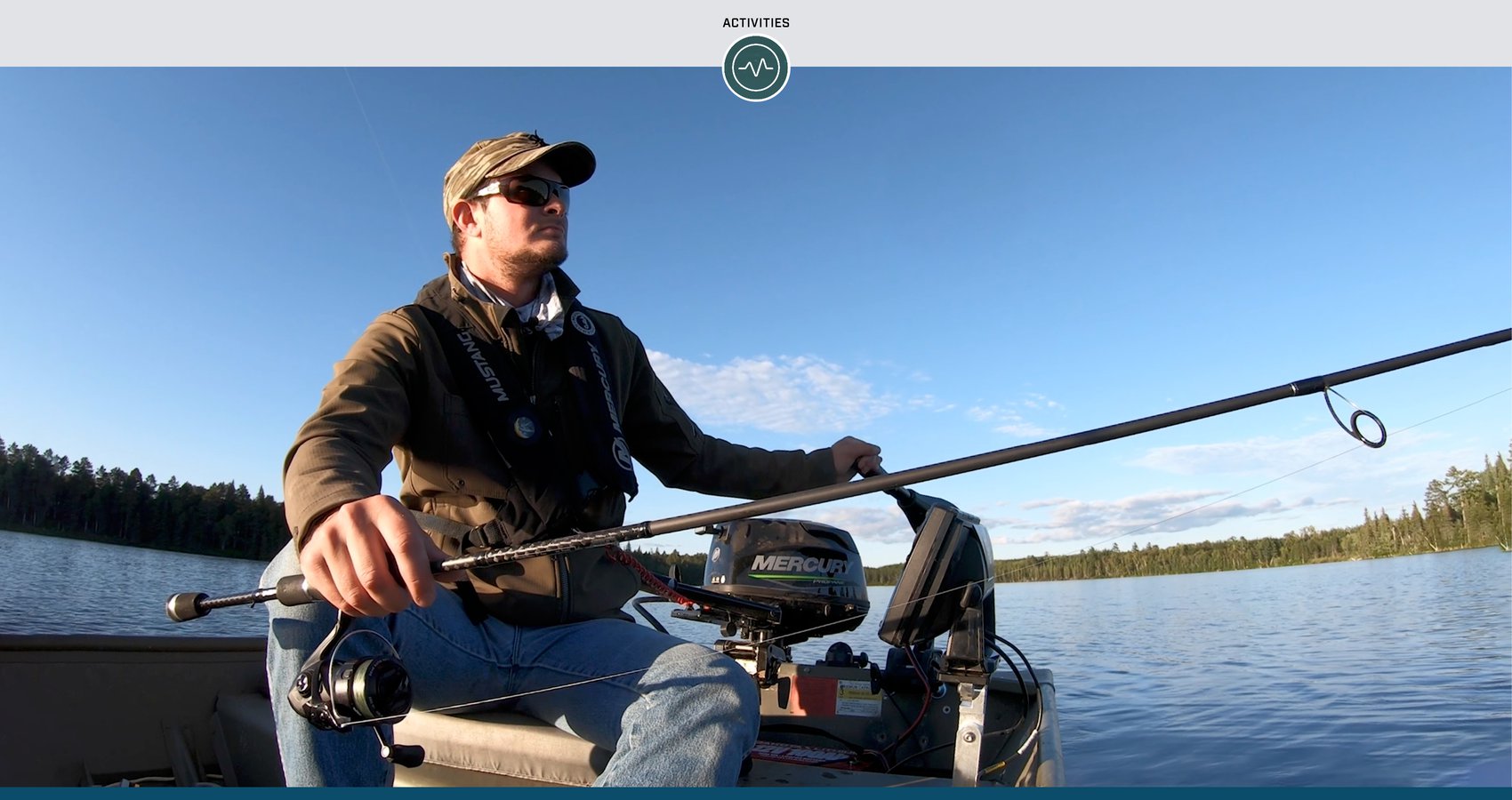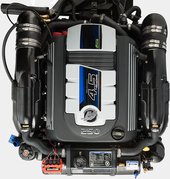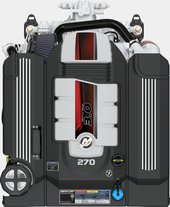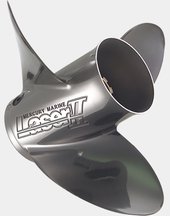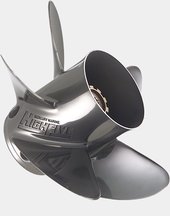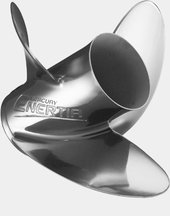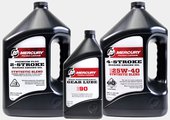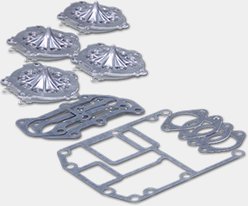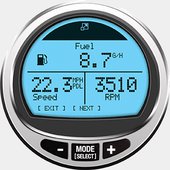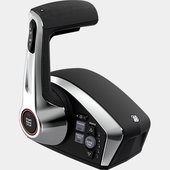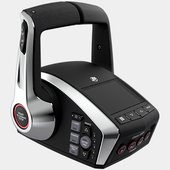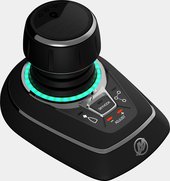It’s every angler’s dream – to sample unpressured waters where the fish grow big and their appetites bigger. Adapting Virgil’s observation that “fortune favors the bold,” it’s equally true that extraordinary angling opportunity awaits those willing to seek it.
This passion for untouched waters drives Minnesota angler and Wired2Fish team member McKeon Roberts to look far beyond the crowded boat ramps and pressured fisheries of heavily trafficked lakes and focus on the tucked-away treasures he locates via satellite imaging. A strategy well-serving to anglers anywhere the landscape conceals such secluded gems, this game plan often takes Roberts on a dusty rumble down unpaved roads where the anticipation of slab bluegills swells with every bump and jostle.
“You basically have to go to those little backwater lakes to get into quality bluegills because their growing season is short, so they’re very old and they have to be undisturbed to catch a decent one,” Roberts said.
To get there – and catch trophy bluegills when he finds them – Roberts has put together a well-thought small-boat system that’s easy to transport down remote roads and leverages portable equipment to get the job done.
Small and Stealthy
Roberts reaches his secluded bluegill waters in a Lund 1440 Mod Jon powered by a Mercury 5hp Propane FourStroke outboard. With a simple portable battery system and clamp-on transducer, Roberts can bring along the same types of advanced technology commonly found on a larger fishing boat, including a 7-inch depth finder and a 12-volt transom-mount trolling motor.
The rigging helps him find and effectively fish for bluegills anywhere on remote lakes, including out away from the bank.
“I like to find noticeable weed islands adjacent to a shallow bay,” he said. “It’s easier to pick out and fish those little isolated patches than it is to run the rim of the lake and just troll lily pad edges.”
Opting to forego bluegill fishing during their spawn, Roberts generally targets outside weed lines in 5 to 15 feet of water. Clarity determines how far sunlight penetrates – and thus, how deep the weeds can grow – so he’ll fish shallower in stained waters or deeper in the clear stuff. Either way, it’s all about covering water to find active fish.
“Why fight the wind? Use the wind,” Roberts said. “I’ll use the trolling motor to control the drift and go parallel to the weed patches, and then I use the trolling motor to go back up if I want to fish them again.”
Considering the lean-and-mean nature of these backroad adventures, Roberts favors the Mercury propane engine’s lightweight simplicity. Quiet, clean-burning convenience makes this a good choice for small-water getaways that often include camping.
“The major benefit of that propane outboard is going into these lakes that are not easy to access with a lightweight motor that you can carry by hand,” Roberts said. “You don’t have to carry gasoline with you. A 1-pound propane cylinder is lighter than a trolling motor battery.
“A propane engine is less cumbersome in that you don’t have to mix gas (like with a two-stroke outboard), and you just change the oil. It just makes the whole package lighter and more convenient.”
What They Like
Because his hidden-waters effort centers on finding bragging rights bluegill, Roberts typically uses a tungsten jig pre-rigged with a soft-plastic. A scented body helps, but it’s more about presenting a hefty meal in a vulnerable position.
“I’m using a bigger-profile bait to encourage bigger bluegills and discourage smaller bluegills,” Roberts said. “The weight of the jig depends on the depth of water you’re fishing, but I generally use a lighter jig because I like to keep the bait up so they don’t have to work as hard to find it, and that gives it a slower action.”
Trolling these jigs usually does the trick, but Roberts said bluegill seekers can cover water faster with a safety pin-style spinner blade on the jig. Another option: bobbers with natural or artificial baits. With the bobber, he’ll use aggressive pops to create fish-attracting commotion.
Roberts likes a pencil-style bobber, as it’s impacted less by the wind and more sensitive to light bites. Also, when using his popping technique, a bobber with a wider profile tends to pull forward, while the slender pencil bobber dives down, rises and stays in place.
“If I really want to downsize, I’ll use an ice fishing tungsten jig for a smaller profile,” added Roberts, who rigs the small jig with a “micro plastic” designed to mimic a small insect.
“With panfishing, I have a preference for using a longer spinning rod because you can get away with a light rod instead of an ultralight; you just get a lighter tip,” he said. “I’ll use a 7- to 9-foot rod because it’s more fun when one of those bluegill digs down on a long, bendy rod.”
A 1000-size spinning reel with 6-pound-test braided main line and a 3- to 4-pound-test fluorocarbon leader connected with an Albright knot completes Roberts’ setup. He’ll use a 6-foot leader for casting and trolling, while bobber rigs get a shorter leader.
Worth the Effort
Venturing far from the familiar, rumbling down questionable roads that rattle the change in your console, entrusting a day to the unknown – sure, it’s a gamble, but that’s the essence of outdoor adventures. It’s about the quest for something special and the willingness to risk time and effort for the potential payoff.
“I have this obsession with looking at maps, and when you look at (areas with) a lot of water, I get excited to explore these places where you have to be willing to put in the work to reach them,” Roberts said. “They don’t always pay off, but when they do, you have these little honey holes to yourself.
“Not every lake has big bluegills in them, but when you put in the work to get to a lake with big bluegills, it is very rewarding. Whether you’re hiking through the woods, going down a crummy trail or loading the boat by hand, that Mercury propane motor just makes the work easier.”
